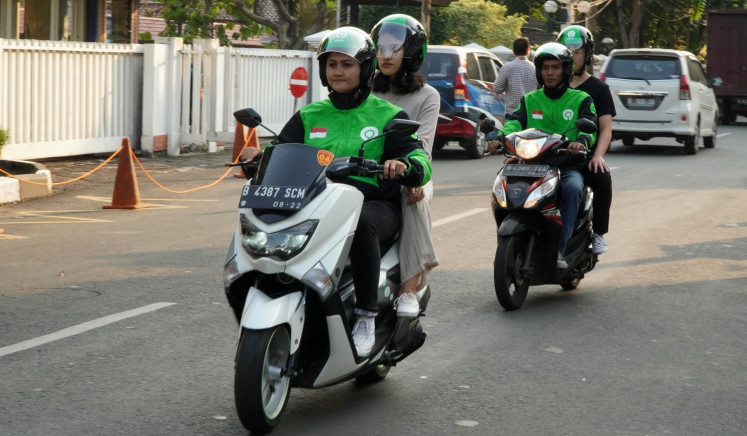
A recent study by an Indonesian think tank, Alvara Research Center, found that, as one of the drivers of the digital economy, millennials prefer homegrown apps to foreign ones.
The research, titled “Behaviors and Preference towards E-Commerce Apps among Millennial Generation in Indonesia in 2019”, also found that Gojek, a homegrown decacorn, is currently dominating three sectors of Indonesia’s e-commerce: ride hailing service, food delivery and digital payments.
The study aimed to discover the trends among millennial consumers in using their mobile e-commerce apps, measuring the brand awareness, preferences and behaviors, as well as satisfaction.
The research, conducted from April to June 2019, involved 1,204 respondents in major cities in Indonesia, including Greater Jakarta, Bali, Padang, Yogyakarta and Manado.
The millennials in Indonesia are a generation of digital natives, with 98.2 percent using smartphones, according to a separate study conducted by the IDN Research Institute and Alvara Research Center early this year. For about six hours a day, millennials in Indonesia access the internet for various purposes, such as communication, networking as well as getting on-demand services and purchasing goods online.
Millennials, thus, play an important role in helping the development of e-commerce in Indonesia, said Alvara Research CEO and founder Hasanuddin Ali.
Ride-hailing service
Being able to choose more than one on-demand app, some 70.4 percent of the respondents prefer to use Gojek to look for a ride, while 45.7 percent prefer the other ride-hailing app, Grab.
Most respondents who use two ride-hailing apps consider Gojek more reliable. Besides, it offers more features in a single mobile app. They are most likely to suggest other people use Gojek rather than any other on-demand app.
GoFood leads food delivery services
GoFood, on the other hand, has impressed customers of all ages. GoFood, as the pioneer and leader in food-delivery app in Indonesia, has shown good scores in the brand awareness, usage and loyalty among the customers.
Respondents, who could choose more than one app, showed a preference for GoFood over other apps. It was found that 71.7 percent of the respondents choose GoFood and some 39.9 percent choose GrabFood.
Millennials prefer GoFood because they like its service and will recommend GoFood, while regarding GrabFood as synonymous with low prices and promotions.
GoPay as most used digital wallet
GoPay, the e-wallet of Gojek, is the most recognized digital wallet. All of the respondents were aware of the brand GoPay. Other digital wallets have scored lower than GoPay. E-wallet OVO, for example, is recognized by 96.2 percent of the respondents, Dana 50.3 percent, PayTren 47 percent and LinkAja 35 percent.
GoPay is also the most used and well-recommended e-wallet, as 67.9 percent of the respondents said they used GoPay.
Support local apps
Alvara Research Center has encouraged Indonesians to use homegrown apps in order to support the rapid growth of Indonesia’s e-commerce.
“This is the right time to encourage millennials, who are also digital natives, to choose homegrown apps so that Indonesia can become the leading player in the digital economy, not only as a market,” said Hasanuddin. “Moreover, various economic outlook reports that Indonesia has a great potential for digital transactions.”
Digital transactions in Indonesia may exceed US$130 billion (Rp 1,700 trillion) in 2020, according to a report by the Indonesian E-Commerce Association (idEA).
That is a huge increase compared to the $20 billion (Rp 281 trillion) and $8 billion (Rp 104 trillion) in 2016 and 2013, respectively.
Indonesia has generated four unicorns, private startup companies valued at over $1 billion, and ranked the seventh globally, defeating France, Switzerland, and Israel. Homegrown on-demand app Gojek has become Indonesia’s first decacorn with a valuation higher than $10 billion.
By producing unicorns, Alvara Research Center notes, Indonesia has begun to be a key player in the digital economy, especially in the domestic market. Indonesia’s unicorns have helped e-commerce grow rapidly and encourage new and promising players that can innovate and catch up with the fast-growing market.
It concludes that Indonesia should maintain its position in e-commerce so the country will not lose its market share and become a marketplace for foreign companies again.